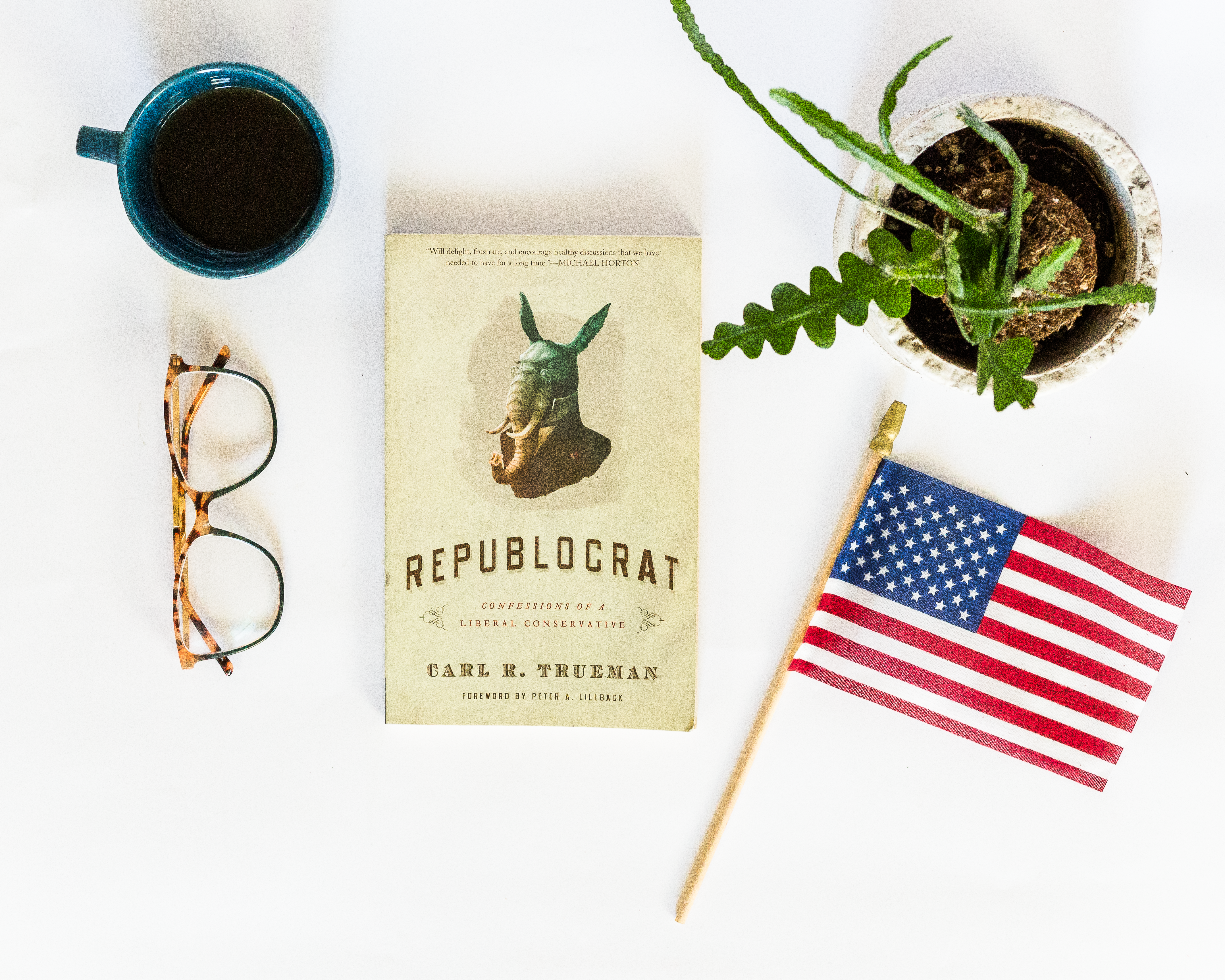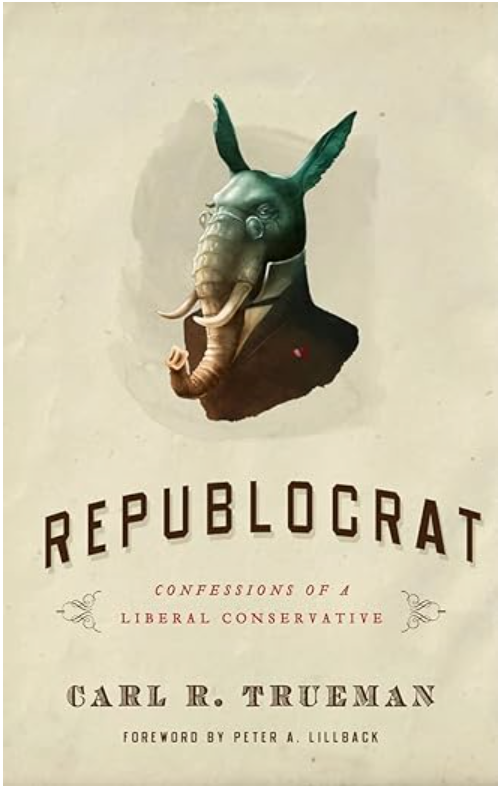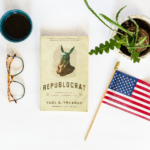This post contains affiliate links
Republocrat is a helpful book by author and seminary professor Carl Trueman. This book was my introduction to Dr. Trueman’s writings. I’ve seen his books enthusiastically shared on social media so my curiosity was piqued. Now I can say I understand the hype. Dr. Trueman is currently a professor at Grove City College but at the time Republocrat was written (2010), he was a professor of Historical Theology at Westminster Theological Seminary. It is from his perspective as a historian and also a native of England that the book was written.
Prior to reading the book, I was unaware that Republocrat is an actual term and thought it was just a clever title for the book. The subtitle is Confessions of A Liberal Conservative and its oxymoronic nature intrigued me. The intersection of faith and politics has been of particular interest to me as an American Christian as it often seems that American politics is elevated to a matter of first importance (1 Corinthians 15:3-4).
I’ve found it troubling to witness governing political documents treated with almost the same authority as God’s word. I’ve relied on books like Republocrat to help me make sense of this and give me biblical wisdom and insight as to how to proceed in navigating my life as an American Christian.
Republocrat begins with Trueman’s observations as an outsider looking in. In the introduction he stated, “The primary reason why I agreed to write this book is my belief that the evangelical church in America is in danger of alienating a significant section of people, particularly younger people, through too tight a connection between conservative party politics and Christian fidelity,” (pg. xx). A few pages later he asserts, “The gospel cannot and must not be identified with partisan political posturing,” (pg. xxv). I appreciate Dr. Trueman’s convictions here and I wholeheartedly agree as the gospel transcends both time and culture.
In Chapter One Trueman wrote, “. . . I find myself politically homeless, restless, and disenchanted, and I suspect I am not alone,” (pg. 18). A few sentences later he elaborated, “. . . I believe that on certain issues there is no obviously ‘Christian’ position. I am inclined to include among such issues the wars in Iraq and Afghanistan, the appropriateness of trade unions, rates of direct and indirect taxation, etc. To make any of these things acid tests of Christian orthodoxy is to go well beyond anything the Bible teaches or that the church has felt it necessary to define over the two thousand years of its existence,” (pg. 18).
I enjoyed reading Dr. Trueman’s observations as I share many of the sentiments he expressed. It is fascinating to me that this book is “older” considering its publication date yet it remains relevant and offers much wisdom to Christian readers nearly a decade and a half later. Trueman helpfully peels back some of the layers on the complex intertwining of Christianity and American politics and helps readers understand a bit more clearly how this intertwining came to be.
At only 110 pages, Republocrat is a brief read but it is incredibly impactful. The book is highly academic and although some of it was beyond my comprehension, I’m grateful for the many ways in which it has challenged me. Republocrat was also humorous at times as Trueman’s passion was plainly displayed. I laughed a few times while reading this book intrigued by Trueman’s honesty. If you’re curious about the intersection of Christianity and American politics, I highly recommend reading this helpful book.











